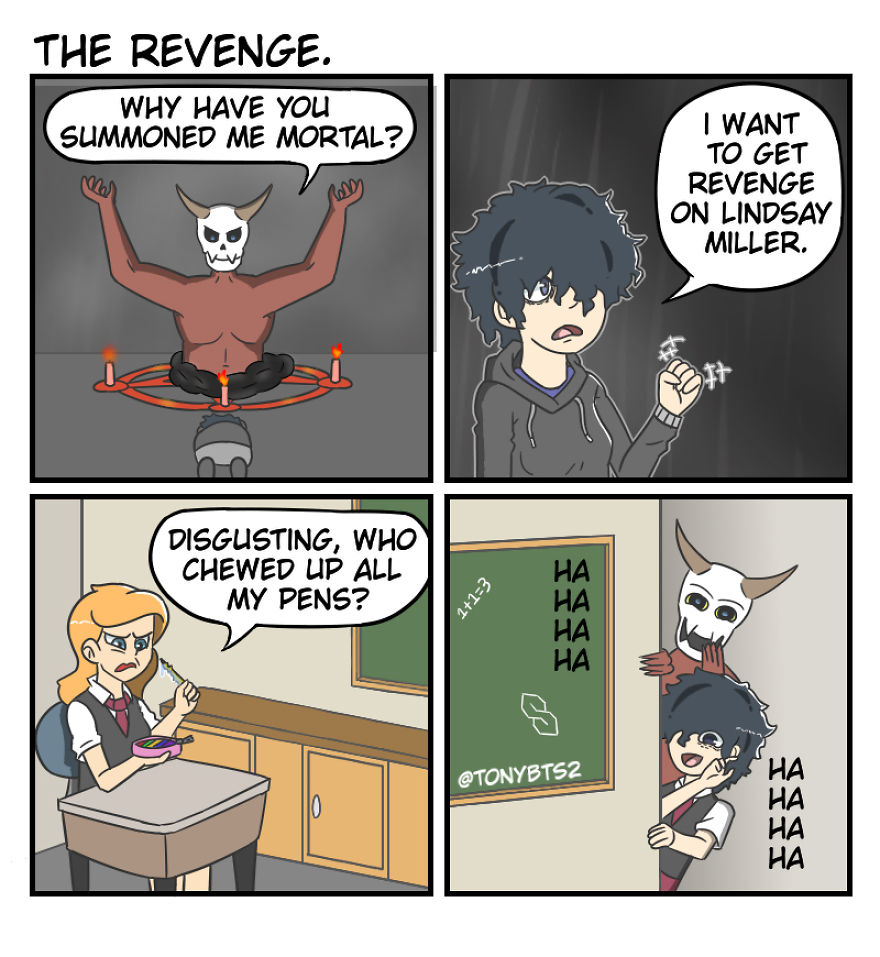Humor has always been a complex and multifaceted aspect of human expression, often reflecting societal norms, values, and taboos. Among the various styles of humor, dark humor stands out as one of the most controversial. It invites laughter at topics that are generally considered serious, grim, or taboo, such as death, illness, or tragedy. While some may find solace and relief in the absurdity of dark humor, others may see it as distasteful or inappropriate. By exploring the nuances of what is considered dark humor, we can better understand its appeal and the reactions it evokes in different audiences.
At its core, dark humor seeks to provoke thought and challenge the boundaries of what society deems acceptable. It often acts as a coping mechanism, allowing individuals to confront uncomfortable realities through laughter. However, the line between humor and insensitivity can be thin, making it essential to navigate this territory with care. What constitutes dark humor can vary greatly depending on cultural context, personal experiences, and individual sensitivities, leading to a rich tapestry of interpretations and reactions.
As we delve deeper into the world of dark humor, we will explore its definitions, origins, and examples, as well as the psychological implications of this unique form of comedy. We will also address the question of when dark humor crosses the line into offensive territory. By understanding what is considered dark humor, we can appreciate its role in society while remaining mindful of the potential consequences of our laughter.
What is Dark Humor?
Dark humor is a style of comedy that finds humor in subjects that are typically associated with tragedy, suffering, or taboo. It often employs irony, sarcasm, and absurdity to create a juxtaposition between the serious and the ludicrous. This type of humor can be both unsettling and liberating, providing a unique lens through which to view the darker aspects of life.
How Did Dark Humor Emerge?
The roots of dark humor can be traced back to various literary and theatrical traditions. From Shakespeare's tragicomedies to the satirical works of the Enlightenment, humor has long been used as a tool to comment on the human condition. In the 20th century, dark humor became more prominent in response to global conflicts, social upheaval, and existential crises, reflecting a society grappling with the absurdity of life and death.
Who are Some Notable Figures in Dark Humor?
Several comedians and writers have made significant contributions to the realm of dark humor. Some of these notable figures include:
- George Carlin
- David Cross
- Louis C.K.
- Penny Dreadful (TV series)
- Bo Burnham
What is Considered Dark Humor in Different Cultures?
Dark humor is not a universal concept; its acceptance and interpretation can vary widely across cultures. In some societies, making light of death or misfortune may be seen as a form of resilience, while in others, it might be viewed as disrespectful. Understanding these cultural contexts is crucial for recognizing what is considered dark humor in various settings.
What Are the Psychological Effects of Dark Humor?
Engaging with dark humor can have both positive and negative psychological effects. On one hand, it can serve as a coping mechanism, allowing individuals to process grief or trauma in a less threatening manner. On the other hand, it may also perpetuate harmful stereotypes or desensitize individuals to real-world issues. The impact of dark humor ultimately depends on the audience and the context in which it is presented.
When Does Dark Humor Become Offensive?
Determining when dark humor crosses the line into offensiveness is subjective and often dependent on factors such as intent, audience, and timing. What may be acceptable in a private setting among friends might not be appropriate in a public forum. As a rule of thumb, it is essential to consider the potential impact of one's words and the sensitivities of those around them when engaging in dark humor.
What is Considered Dark Humor in Media?
Media plays a significant role in shaping perceptions of dark humor. Films, television shows, and stand-up routines often use dark humor as a narrative device to explore complex themes and provoke thought. However, the line between satire and insensitivity can blur, leading to backlash or criticism from audiences who feel marginalized or offended.
How Can One Appreciate Dark Humor Responsibly?
To appreciate dark humor without causing harm, individuals should:
- Understand the context in which the humor is presented.
- Be mindful of their audience and the potential impact of their words.
- Recognize personal sensitivities and be open to feedback.
- Engage in discussions about the implications of dark humor and its effects on society.
Conclusion: What is Considered Dark Humor?
In conclusion, what is considered dark humor is a complex and subjective topic that varies across cultures, contexts, and individuals. While it can serve as a powerful tool for coping with life's harsh realities, it is essential to navigate this territory with care and mindfulness. By understanding the nuances of dark humor, we can appreciate its role in society while remaining conscious of the potential consequences of our laughter.
You Might Also Like
Unlocking Wisdom: Kelly's Treehouse Quotes InspirationalUnforgettable Moments At The Kim Diddy Party
Unveiling The Guy Gerber Controversy: A Deep Dive Into The Artist's Journey
Unlocking Growth: The Salt Trick For Men
Unlocking The Potential Of Scrolller Discover: A Journey Into Endless Content
Article Recommendations
- Dana Delany Relationships
- Leslie Charleson
- Smokey Robinson And Family
- Massad Boulos Net Worth
- 198 Lb Burmese Python
- Rory Feek New Wife
- Bollyflix
- Lilli Kay Transgender
- Robert Plant Wife
- What Ethnicity Is Kari Lake


